OWL Studio: "visual novel for an artist – an outlet"
On March 3, the first episode of the visual novel One Day in London from the Moscow studio OWL Studio was released on the Russian Google Play. We talked about the project with the founder and director of the company Vera Velichko.
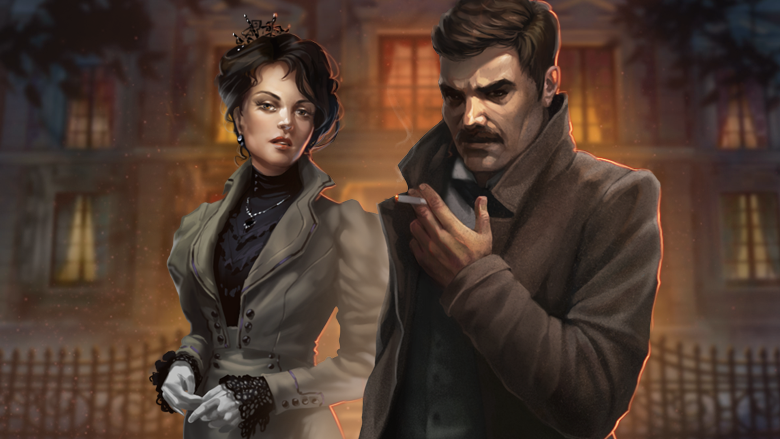
Hi! Let’s start the conversation with a story about the studio. Where and how long ago did her story start?

Vera Velichko
Hi! She will be one year old this spring. The deadline, of course, is small, but for me everything started yesterday … it is difficult to realize that so much time has passed.
I’ve always understood that I don’t want to be an employee all my life – not that kind of character… But to start your own business, you need experience, so this idea remained “somewhere out there”. The year before last, when I got to the position of art director in the WebGames studio, I realized that this is the ceiling, and this ceiling does not motivate me at all. Then there are two options – either, gaining experience, move from studio to studio, reaching ever higher, but still ceilings – or go into free swimming. And if I choose the first option, there is a high probability that the opportunities for the second will be missed… In general, it was the same momnet – “now or never”. And a group of like-minded people and I shared the first shared folder on Google dock.
The studio’s title project is the visual novel One day in London. The genre, frankly speaking, is unexpected and, as it seems to me, risky. Why did you take up it, and did not decide to tell a story, for example, within the framework of the hidden object genre or a quest?
The most popular question. We want to release corporate T–shirts – it will say “Wow, parallax!” on the front, and “Why a visual novel?” on the back.
Usually, the starting idea for creating a studio is a project – a game designer has an idea, then the missing resources are pulled up and “the game I always wanted to make” is released with a successful combination of circumstances.
The second rather popular option is an investor who realized that you can make good money on games today. And [it turns out] game projects that are Frankenstein of the most successfully monetized ideas on the market. No, I’m not condemning this approach now, where do I go. It also happens that such studios achieve impressive success.
Our studio was based on the idea of creating a workable team that can produce high-quality content. And since we didn’t have investors at the start, we worked with what we had: we had two artists, a good screenwriter and a programmer. It’s definitely not enough for a high-quality quest.
We considered the idea of HOG, but decided to abandon it. The specifics of the genre are such that you have to sacrifice the quality of the picture. The standard HOG location is a rather messy collage of a huge amount of graphics. Doing HOG would mean lowering the price of our main trump card, the visual series.
Therefore, after considering all the pros and cons, we decided to focus on the visual novel genre as the most promising within our team. And one of the advantages of this solution is already being observed: this is a cognitive dissonance among developers: “oh, it’s beautiful how. But this is a visual novel! But normally made! But why?!”. This, you must admit, is already an info-reason.
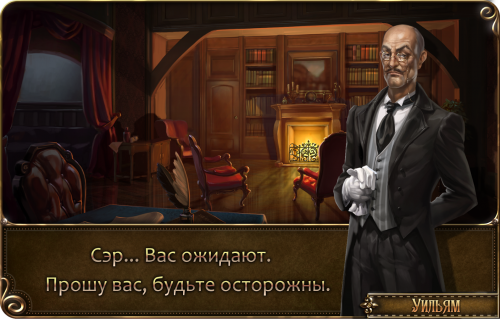
The setting of the game has long been known – the Victorian era. With her fashion for seances, one of which is the beginning of the game. But as for the mechanics, there are still a lot of questions. Tell me how the user’s interaction with the game is built?
The main feature of the genre is the ability to influence the development of the plot. Answering questions or performing certain actions, the player can quarrel and put up with the characters, receive or not receive this or that information. Depending on how he behaves, he can see the same story with different eyes, go through it like an enthusiastic young man in the company of friends, or like a suspicious misanthrope, alone. The choice of actions often corresponds to the character of the reader himself – and therefore this story will be real for everyone. After conducting live tests in the focus group, it was very funny to watch the testers exchange impressions.
Making the narrative coherent and logical, despite such a spread of options, is not an easy task. Therefore, for the first episode, we left the same key scenes and the same ending. But in the future we plan to include alternative key and final events.
Well, interactivity, where without them – mini-games, interactive elements on locations, tasks for the sequence of actions, etc. They are woven into the plot, switching the user from time to time from “read” to “do”. But we tried to make sure that the quest component did not attract the user’s attention to itself, in order to prevent Laura from calling out, because this would kill the main feature of the project.
That is, it doesn’t come down to just reading and choosing replicas?
No. Sometimes you’ll have to think. And the drawing skills of our user will come in very handy.
One of the problems of such games is the fast speed of “eating” content. How did you solve this problem?
Alternative plot branches. The first episode is in some way a test, so replayability was not a priority for us – it was necessary to create a basic base of mechanics and make an intriguing preamble. At this stage, we catch bugs, debug processes and get feedback, and users quickly eat the episode and wait for the continuation. Therefore, in the first episode, alternative branches are present, but not critical.
In subsequent episodes, we will increase the game time due to them several times and focus on ensuring that the user is motivated to pass alternative branches. In particular, a patch for achievements and collectible cards is currently in development.
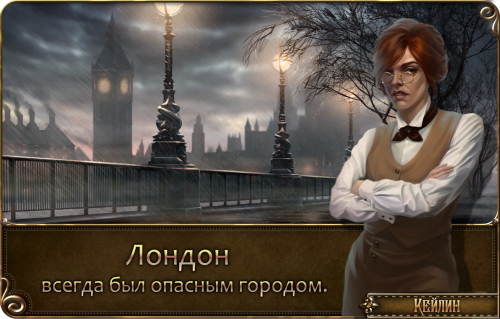
You decided to occasionally distribute the project. And how exactly are you working on the game? Do you immediately prepare the entire series so that you can gradually throw out new episodes, or, conversely, do you prepare one episode, and then proceed to the next?
We have a prescribed game universe, a bank of characters and a general plot – we determined this at the initial stage. And during the development process, we write the script directly. Now, while we are porting the first episode to other platforms and polishing bugs, the screenwriter is preparing the next episode.
Since we are working according to our own scenario, this is the best option. On the one hand, we have an idea of the plot and a head start on the content from the screenwriter, and on the other hand, we have the opportunity to parallel processes and, if necessary, take into account the reaction of our users.
In addition, another project is currently in development, based on the same lore as the novella, but in a different genre. We haven’t announced it yet – but I think we’ll be able to tell you some details in the near future. The further fate of the novel will depend, among other things, on him.
The game was released on Android. What else are you going to go out on?
On everything that moves. I’m kidding, of course. We are not planning to [port] to consoles yet. And so – iOS, PC, WP. The project was originally planned as a cross-platform. Android was the first because of the comparative simplicity of publication: now the novel is undergoing a baptism of fire. And then, already combed and polished, it will go to iOS and Steam.
I know that artists really don’t like this word, but looking at the game, I can’t resist saying that from the visual side it (at least according to art) looks delicious. She doesn’t give the impression of an indie project created with limited resources in her spare time. So I can’t help but ask: how is the project funded? Are we talking about an investor, your own savings or something else?
Why don’t they like it? A normal word. Even better – “juicy”. That’s the word we definitely love. Juicy graphics – and that’s it.
It really started as an indie project with limited resources and in my spare time. At the start, I was very lucky to meet one artist, as stubborn as I am, who expressed a desire to participate purely for interest. A visual novel for an artist is an outlet.
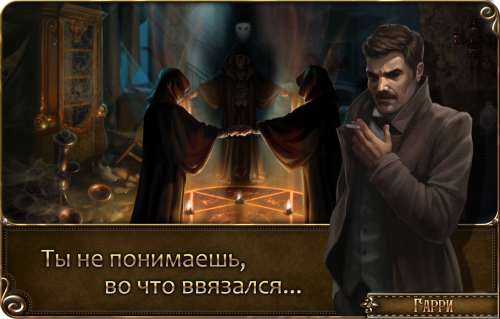
Pinned down by interfaces, packs of five hundred achievements, all sorts of “happy cows” that should inspire confidence in the viewer, artists are dying and suffocating, stroking albums with the works of wanderers or art books of cool igrodelov at night (and cool igrodelov “happy cows” and five hundred achievements are not shoved into artbooks, they have solid concepts there and the flight of creative thought).
However, you really can’t go far on inspiration, so the question is reasonable. Therefore, we tried to monetize our strong side – high-quality art. We initially positioned ourselves also as an outsourcing team – this is what allows us to work on our own projects at this stage. Now we are cooperating with several game development studios.
The company is now positioning itself not only as a developer, but also as a publisher. You must admit, considering that the studio has not launched any projects yet, it’s strange. Why did you do this and what are you ready to offer as a publisher?
As I already wrote in Max Fomichev’s Facebook group, a difficult story came out with the marketing part of the project. The group of enthusiasts with whom we started this project included a young talented marketer, driven by the same thought as me – “now or never”. He had a sufficient number of connections, had experience in the gaming industry and was ready to actively “work with his hands”, which he positioned as an alternative to the banal investment of money in advertising. It was with his skills and enthusiasm that we positioned ourselves as a publisher. And there was a project that we took to the publishing house in this position and prepared for release on mobile platforms.
However, unfortunately, our paths diverged, and the aforementioned miracle man left the team together with the project taken on by the publisher… But still, after thinking about it for a while, we decided not to remove the line about publishing from the studio’s website. We are still ready to consider interesting projects and discuss mutually beneficial agreements, share experience and resources. Meanwhile, the studio is not standing still, and what was hard for us yesterday will become possible tomorrow.
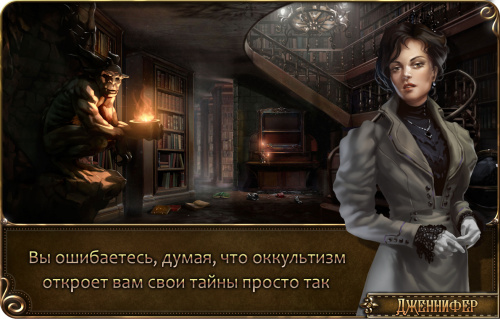
And the last question brings us back to One day in London. The game was recently released on Google Play. What’s next?
In the near future we plan to release Green Light on Steam, the first episode has already been localized into English. And also in the foreseeable future, the release on iOS – porting and modification of the build will take around a month. Plus, the process of getting an apruva from the App Store is an unpredictable thing, so as soon as possible, so right away. Our developer account has been uprooted for a month and a half, so you can expect anything from these guys. However, I hope that all this will not last too long and in the near future our users will be able to evaluate it both on iOS devices and in Full HD version on their PC screens.
Good luck and thanks for the interview!